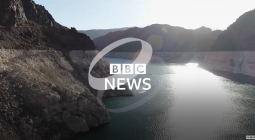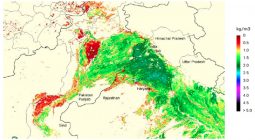Mega Irrigation
Mega scope for Mega Improvements
It wasn’t long ago that mega irrigation schemes (that cover 500,000 hectares or more) were considered to be engines of agricultural development and economic progress. Big dams, canals, barrages were projects of choice for industrialized nations looking to harness their water resources, as well as of newly independent nations looking to jumpstart their economic growth. The imagery of mega irrigation structures was widely used to illustrate the ideas of progress and prosperity.
However, over the past 2-3 decades, the focus of national governments, international organizations, NGOs, researchers, and farmers themselves has shifted towards small-scale systems. This shift is organic and often necessary. However, it has come at the cost of falling investments in the operation and maintenance of mega irrigation systems, even though they continue to be some of the biggest agricultural water users. Besides, the ultimate beneficiaries of most mega irrigation systems are small farmers.
This page brings together insights into the contemporary value of mega irrigation systems, their needs, and the opportunities they present to make big gains in managing water resources more efficiently and equitably. Some ideas that recur throughout are:
Mega irrigation schemes continue to be some of the biggest agricultural water users. In Sudan, for example, the several large irrigation schemes together account for 70-80% of all water use. In Pakistan’s Sindh province, the figure is 90%. So improvement in their management amounts to big gains in water management overall. There is particularly large scope to achieve water use efficiency through conjunctive use of groundwater and surface water.
Mega irrigation schemes are multi-functional by nature. They include not only the canals and drains but also the roads, the bridges, the urban settlements, the residential properties. These huge man-made irrigation systems determine what happens where – not just in agriculture but in all other aspects in life.
We also welcome you to share your own stories, resources, and insights from working in large irrigation schemes. Please share them on info@thewaterchannel.tv
Videos
More >Articles
More >Blogposts
More >Dossiers
- Managing Desert Locusts
- Green Roads for Water
- Dryland Development
- Green Transformation
- Regenerative Agriculture
- Water and Development Partnership
- Preserving Assets - Operation and Maintenance in Delta’s
- None left behind
- Stories from the Arab World
- Water in the newsroom
- The underground drought
- Is the world getting saltier?
- Mega Irrigation
- Water integrity
- Livelihoods from Floods
- Water Productivity
- Uncategorized


